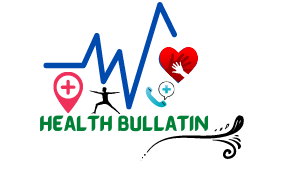Dieting has its bad reputation, but that doesn’t mean you can’t diet and still have good health. If you exercise, eat right, and have good self-discipline when it comes to your eating habits, you can improve your health while also losing weight and getting fit. To find out more about the best dieting tips and advice, check out the following article on how to start a diet for good health!
Start a healthy diet today
A diet rich in whole grains, fruits and vegetables, lean protein and healthy fats will not only help you lose weight but also promote overall good health. Focusing on these foods with every meal is a great way to start feeling better both mentally and physically. If you’re looking to start a diet today, look at it as more than just weight loss—your goal should be to maintain good health for years to come. Start by cutting back on processed foods that lack any real nutritional value, such as cookies or white bread. Remember: calories matter most when it comes to dieting, so try to avoid calorie-rich drinks like juice or soda; instead of drinking your calories, eat them!
Eat Slowly
When you eat quickly, your body doesn’t have time to signal when it’s full. If you really want to lose weight, try slowing down your meals and eating mindfully. Slowing down also allows your body more time to tell you if you’re truly hungry—or just bored or upset. This can reduce snacking and overeating as well! Plus, it’s easier on digestion and makes eating a much more pleasant experience overall.
Use Smaller Plates
You’re probably already aware that eating less is one of your best weapons against fat. It turns out, however, that portion size can play a role in weight loss—in both positive and negative ways. Smaller plates lead to smaller portions, which means less food overall, but it also makes meals appear bigger than they are and trick you into overindulging. The moral of the story?
Chew More Often
A lot of people tend to eat too fast, which is why we end up consuming more calories than we should. It’s important to sit down and chew each bite of food 15-20 times before swallowing. Doing so will not only help you feel fuller faster, but it will also allow your body time to register that you’re full and thus reduce overeating. You may want to invest in a smaller plate or bowl while you get used to eating slower; it makes portion control easier when there’s less food on your plate.
Drink Plenty of Water
I’m sure we’ve all heard that water is crucial to good health. In fact, it’s so important that many experts say we should be drinking eight glasses of it every day. If you’re hoping to lose weight, however, you may want to change how you think about water.
Choose Whole Grains
Grains can make up a solid part of your diet. Good whole grains contain more fiber and are more filling than refined grains, helping to keep you fuller longer and prevent overeating. Plus, they’re rich in vitamins, minerals, antioxidants and phytochemicals that promote good health. Opt for whole grains over refined or processed ones—brown rice instead of white rice; multigrain bread instead of white bread; whole-wheat pasta instead of regular pasta.

